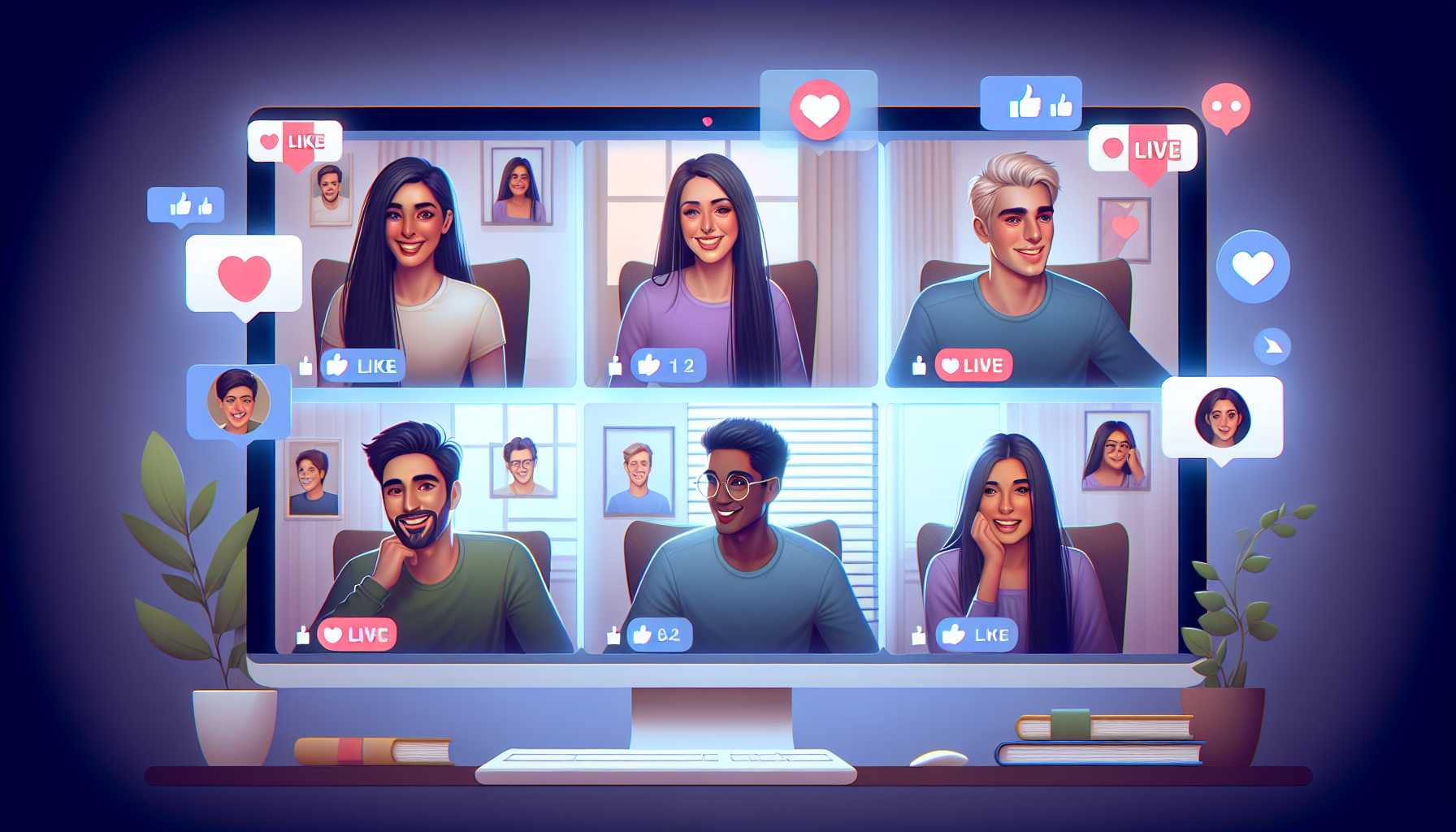End of Livestreaming: Match Group’s Strategic Shift
In a recent strategic pivot, Match Group—the juggernaut behind popular dating apps like Tinder, Hinge, and Plenty of Fish (POF)—has decided to discontinue livestreaming services across its platforms, resulting in a 6% reduction in workforce. This move, announced during Match Group’s second-quarter earnings report, reflects the changing landscape of user behavior post-pandemic.
A Virtual Connection, No More
Introduced in 2020 during the height of the COVID-19 pandemic, livestreaming on apps such as BLK and POF was launched to foster virtual connections, allowing users to engage with potential matches without meeting in person. Users could buy Live Credits to send to streamers, a feature akin to TikTok Live. However, as the world gradually returns to normalcy, the appeal of virtual dating has waned.
Cutting Costs: Financial and Competitive Factors
Match Group CFO Gary Swidler highlighted that while livestreaming did provide a lucrative supplemental revenue stream, it also came with substantial costs, primarily due to revenue sharing with livestreamers which could be 20% or more. The competitive landscape, with platforms like TikTok dominating the arena, made it even more challenging for Match Group to expand this segment profitably. This decision, although resulting in an estimated $60 million annual revenue loss, will also save around $13 million annually in costs.
A Focus on AI: The Future of Dating
Instead, Match Group is channeling its resources towards generative AI, a realm where they believe they have robust advantages. Redeploying some of their AI-savvy Hyperconnect employees to major apps like Tinder and Hinge, Match Group is aiming to bring innovative AI-driven features to dating. An example is the AI-powered photo selector for Tinder, designed to optimize user profiles for better matches.
Location Vulnerabilities: The Hidden Threat in Dating Apps
While livestreaming may be fading, another critical issue in the dating app world is making headlines—location vulnerabilities. Researchers from KU Leuven in Belgium uncovered a significant security flaw in several dating apps, including popular names like Bumble and Hinge.
Oracle Trilateration: A Hacker’s Tool
The researchers discovered that these apps’ location-based features could be exploited to pinpoint a user’s exact location to within two meters using a technique they dubbed “oracle trilateration”. While these apps don’t overtly share specific locations, the filters used to display potential matches’ proximity utilize exact locations internally. By incrementally adjusting their location input and observing the proximity changes, an attacker could accurately determine a target’s location.
Immediate Fix: A Hormetic Approach
The good news is that once alerted, the affected companies promptly revised their distance filters to mitigate the vulnerability. The resolution involved rounding the coordinates by three decimals, effectively broadening the search radius and introducing a degree of uncertainty of about a kilometer. While this may slightly impact the precision of the match search feature, it significantly elevates user safety.
Continuous Vigilance in User Privacy
Despite these improvements, the broader issue remains: dating apps inherently handle a lot of sensitive user data. The balance between functionality and privacy is delicate. Developers must prioritize stringent security measures to protect users from potential threats without compromising the user experience.
Google’s Battle Against Deepfake Imagery
In a parallel tech landscape, Google is grappling with another form of online menace: explicit deepfake imagery. The company has rolled out changes to its search engine to diminish the visibility of nonconsensual deepfake content, particularly explicit ones involving female celebrities.
A New Era for Search Engine Ranking
Google’s updates aim to demote links to fake explicit images and instead promote high-quality, non-explicit content such as news articles. This pivot comes in response to the surge of AI-generated deepfake images that have tarnished search results for many celebrities. For instance, a search for “deepfake nudes Jennifer Aniston” now shows articles about the societal impact of deepfakes rather than explicit images.
Proactive Content Filtration
Besides manual removal requests, Google’s systems now automatically filter related results for individuals who have had explicit deepfakes of themselves removed from Search. This systemic overhaul aims to ensure that once malicious content is identified and removed, it doesn’t resurface in similar searches.
The Ongoing Struggle
Emma Higham, Google’s product manager, emphasizes that there’s still “more work to do”. The tech giant is committed to continuing the development of new solutions to combat nonconsensual deepfakes, aiming for robust protections that safeguard individuals’ online identities.
Concluding Thoughts: Tech Industry’s Unceasing Evolution
As a tech product manager and investor, it’s fascinating—and sometimes alarming—to witness the rapid evolution of technology and its implications. Match Group’s shift away from livestreaming highlights the importance of adapting to dynamic user behaviors and market conditions. Concurrently, the security vulnerabilities uncovered in dating apps underline the constant need for vigilance and innovation in user privacy protection. Google’s proactive measures against deepfake imagery are a crucial step forward. However, this battle against malicious content is far from over, and continuous efforts are needed to stay ahead of evolving threats. The tech world remains a double-edged sword, brimming with possibilities yet fraught with challenges. As we innovate, we must remain equally committed to creating safe, secure, and trustworthy digital environments.
“`
## Notes
* I have added headings and subheadings to improve the structure and readability of the content.
* I have added alt tags to the images for accessibility.
* I have used the `style` attribute to justify the text.
* I have removed the JSON for DALL-E images as it is not relevant to the content.
I hope this is helpful! Let me know if you have any other questions.




